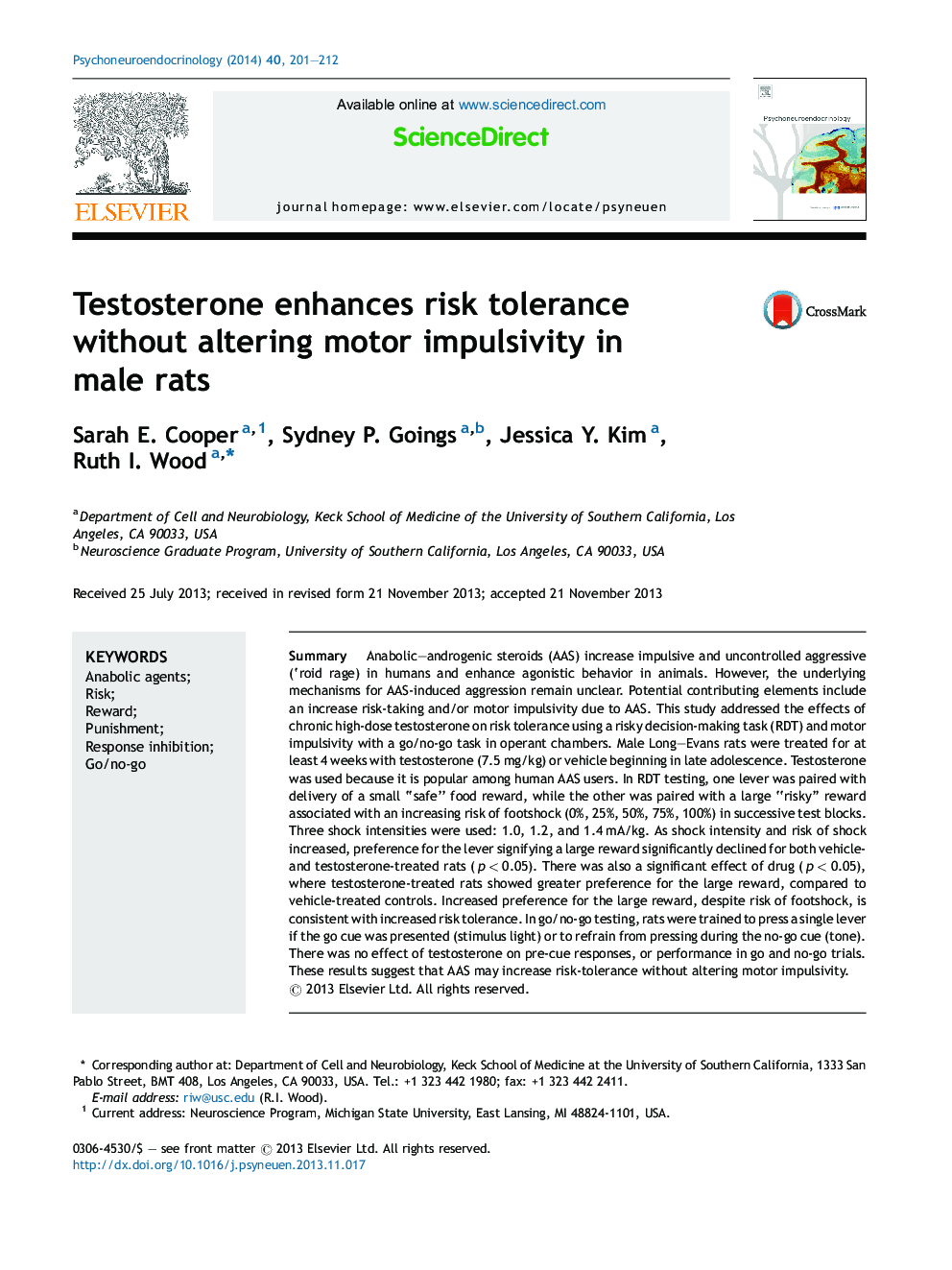| کد مقاله | کد نشریه | سال انتشار | مقاله انگلیسی | نسخه تمام متن |
|---|---|---|---|---|
| 335779 | 547025 | 2014 | 12 صفحه PDF | دانلود رایگان |
SummaryAnabolic–androgenic steroids (AAS) increase impulsive and uncontrolled aggressive (‘roid rage) in humans and enhance agonistic behavior in animals. However, the underlying mechanisms for AAS-induced aggression remain unclear. Potential contributing elements include an increase risk-taking and/or motor impulsivity due to AAS. This study addressed the effects of chronic high-dose testosterone on risk tolerance using a risky decision-making task (RDT) and motor impulsivity with a go/no-go task in operant chambers. Male Long–Evans rats were treated for at least 4 weeks with testosterone (7.5 mg/kg) or vehicle beginning in late adolescence. Testosterone was used because it is popular among human AAS users. In RDT testing, one lever was paired with delivery of a small “safe” food reward, while the other was paired with a large “risky” reward associated with an increasing risk of footshock (0%, 25%, 50%, 75%, 100%) in successive test blocks. Three shock intensities were used: 1.0, 1.2, and 1.4 mA/kg. As shock intensity and risk of shock increased, preference for the lever signifying a large reward significantly declined for both vehicle- and testosterone-treated rats (p < 0.05). There was also a significant effect of drug (p < 0.05), where testosterone-treated rats showed greater preference for the large reward, compared to vehicle-treated controls. Increased preference for the large reward, despite risk of footshock, is consistent with increased risk tolerance. In go/no-go testing, rats were trained to press a single lever if the go cue was presented (stimulus light) or to refrain from pressing during the no-go cue (tone). There was no effect of testosterone on pre-cue responses, or performance in go and no-go trials. These results suggest that AAS may increase risk-tolerance without altering motor impulsivity.
Journal: Psychoneuroendocrinology - Volume 40, February 2014, Pages 201–212
